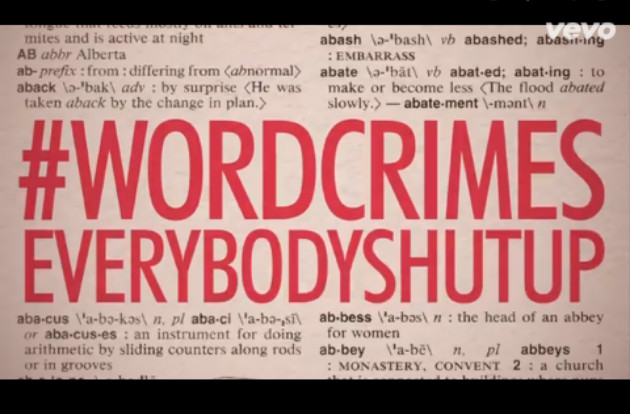
For those of you who know me or The Deciding Factor, you know it would have been impossible for the Weird Al Yankovic video “Word Crimes” to be released without comment. It perfectly captures all of my personal (and our agency’s) greatest pet peeves concerning the use of the English language.
We once had a client ask us, “Do you punctuate in text messages?” while we were discussing the importance of professional communication for business. Our answer – YES. That is especially true when the recipient of your message is a customer, a potential customer or a business contact. With the interconnectedness of our lives, you never know if the person you know from the soccer field may be a future professional contact. When in doubt, punctuate.
By now you’re probably asking yourself if we’re serious. What’s wrong with an occasional R U there? Other than getting made fun of by Weird Al, it can influence others’ opinion about you and by extension, your business.
One study at Penn State found that frequent texting by middle school students demonstrated lower test scores on a 9th grade grammar assessment. So how you’re communicating in even the most informal way could be affecting your communication in more formal settings.
At the same time, it might actually be degrading your intelligence. A study at the University of Calgary found that texting has a negative impact on people’s linguistic ability to interpret and accept new words. Is it really a good idea to keep your brain from learning new words?
If those two reasons weren’t enough for you, the direct impact on your professional career may put it over the top. Grammarly studied LinkedIn profiles and found that professionals with fewer grammar errors had achieved higher positions – those who failed to achieve director-level positions within the first 10 years of their careers made 2.5 times as many grammar mistakes as director-level colleagues. Professionals with 6-9 promotions in their careers made 45% fewer grammatical errors than those who’d been promoted only 1-4 times.
If that’s the impact poor grammar can have on an individual career, imagine what it says about your company if your website has typos on it or you use the incorrect version of it’s/its on a sales sheet. At the end of the day, proper grammar is about credibility. In this highly competitive marketplace, no one can afford to give up ground on that issue. So thank you to Weird Al for pointing out some awesome grammar truths, including that “it’s” is a contraction and “its” is possessive.
As for diagramming sentences, stay tuned. I’m sure we won’t let that one go without its own blog post in the future. If you’ve always wondered about that or which, restrictive clauses and nonrestrictive clauses, when to use a comma and when not to, then sentence diagramming may provide the answers you’re seeking.
For now, “Word Crimes” offers us a catchy and humorous tune. Make sure your business doesn’t become the next victim to be featured on CSI.










